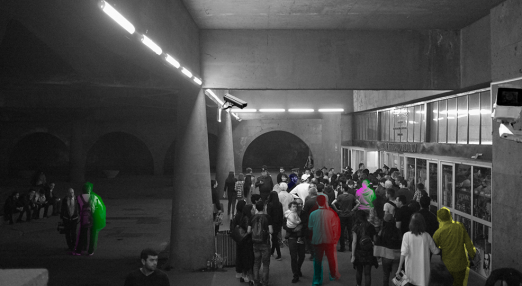digital surveillance
Filter by...
-

Poll: Young people in 13 EU countries refuse surveillance of online communication – Press Release
According to the results of the survey, 80% of young people aged 13 to 17 years old from 13 EU Member States would not feel comfortable being politically active or exploring their sexuality if authorities were able to monitor their digital communication, in order to look for child sexual abuse.
Read more
-

SERBIA: Government retracts again on biometric surveillance
Another attempt to legalise mass biometric surveillance in Serbia was ditched by the government in a sudden U-turn just as 2022 was drawing to a close. In a little over a year this was the second draft law on internal affairs failing to pass the public hearing stage before its formal introduction to the parliamentary vote.
Read more
-

What are the provisions of new policing draft laws
The SHARE Foundation has consistently advocated against the legalisation of mass, indiscriminate biometric surveillance for the past four years, particularly during the consultation process launched upon the withdrawal of the first Draft Law on Internal Affairs. A new draft with old fundamental issues is now before us. The public hearing is open until the end of December.
Read more
-

Legal challenge: The Serbian government attempts to digitise social security system
Organisations from across the world submit a joint legal opinion to support a Serbian NGO’s legal challenge to the Social Card law due to concerns over the right to privacy, the right to social security, and data protection.
Read more
-

Bugs in our pockets?
Now, in Bugs in our Pockets: The Risks of Client-Side Scanning, the authors take a long hard look at the options for mass surveillance via software embedded in people’s devices, as opposed to the current practice of monitoring our communications. Client-side scanning, as the agencies’ new wet dream is called, has a range of possible missions. While Apple and the FBI talked about finding still images of sex abuse, the EU was talking last year about videos and text too, and of targeting terrorism once the argument had been won on child protection.
Read more
-

Celebrating a strong European Parliament stance on AI in law enforcement
On 5 October, following a significant push from across civil society, the European Parliament voted to adopt an important new report on Artificial intelligence in criminal law and its use by the police and judicial authorities in criminal matters by a promising majority of 377 votes in favour, to 248 against. This followed a tense vote earlier as a majority of MEPs opposed all four attempts from the European People's Party (EPP) to remove key fundamental rights provisions from the report.
Read more
-

EDRi and 41 human rights organisations call on the European Parliament to reject amendments to AI and criminal law report
EDRi and 41 human rights organisations* call on the members of the European Parliament to vote against the new amendments, which enable discriminatory predictive policing and biometric mass surveillance.
Read more
-

UK Investigatory Powers Tribunal finds the regime for bulk communications data to be incompatible with EU law
The UK Investigatory Powers Tribunal issued a declaration in EDRi member Privacy International's challenge to the bulk communications data regime, finding UK legislation to be incompatible with EU law.
Read more
-

Biometric mass surveillance flourishes in Germany and the Netherlands
In a new research report, EDRi reveals the shocking extent of biometric mass surveillance practices in Germany, the Netherlands and Poland which are taking over our public spaces like train stations, streets, and shops. The EU and its Member States must act now to set clear legal limits to these practices which create a state of permanent monitoring, profiling and tracking of people.
Read more
-

Booklet: Depths of biometric mass surveillance in Germany, the Netherlands and Poland
In a new research report, EDRi reveals the shocking extent of unlawful biometric mass surveillance practices in Germany, the Netherlands and Poland which are taking over our public spaces like train stations, streets, and shops. The EU and its Member States must act now to set clear legal limits to these practices which create a state of permanent monitoring, profiling and tracking of people.
Read more
-

Initial wins in Italy just two months after the launch of Reclaim Your Face
Last week, the #ReclaimYourFace campaign reached two important milestones at the national level. On Friday April 16th the Italian Data Protection Authority (DPA) rejected the SARI Real Time facial recognition system acquired by the police saying that the system lacks a legal basis and, as designed, it would implement a form of mass surveillance.
Read more
-

France’s highest court validates mass surveillance in the long term
On 21 April, the Conseil d’Etat, France’s highest administrative court, released its decision on mass telecom surveillance. EDRi's member La Quadrature du Net (LQDN) shares its first impressions on this disconcerting ruling which puts the European Union’s legal order at risk.
Read more
